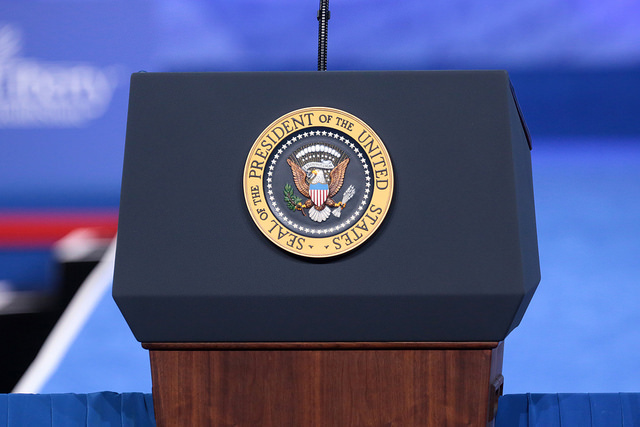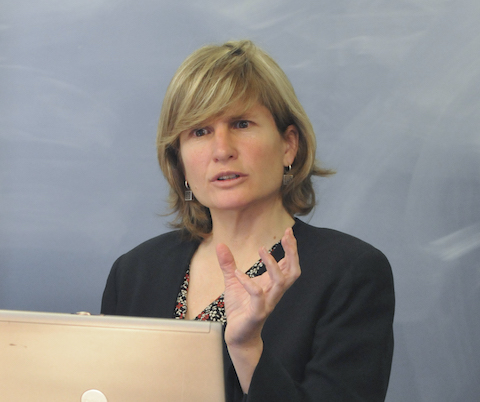What We Learn From Government Speech About Hate
The bombing of a mosque and community center in suburban Minneapolis 10 days ago and the horrific events in Charlottesville, Va., over the weekend are just the most recent examples of hateful violence that has become all too common in America.

Published by The Lawfare Institute
in Cooperation With

The bombing of a mosque and community center in suburban Minneapolis 10 days ago and the horrific events in Charlottesville, Va., over the weekend are just the most recent examples of hateful violence that has become all too common in America.
Such events require government speakers at all levels and in all branches—federal, state and local; executive, legislative and judicial—to make important choices about how they use the platforms that their positions offer. Will they speak out? Will they remain silent? Will they stand up to or, instead, provide cover for those who traffic in hate and destruction?
The stakes could not be higher. How government responds to hate crimes presents crucial openings to lead, build, unite and help this country become stronger. Some leaders seize this opportunity while others squander it.
The president is a uniquely powerful speaker. His office’s substantial resources and varied roles allow him to reach huge audiences. His words serve as model and guide to people in this country and outside it. Much like law, governmental speech, particularly the words of the president, can teach about shared ideals and aspirations. Its power, reach and influence give the U.S. president’s speech great value. But that speech can also inflict grave harm upon the public.
Officials can choose to use the government’s reach to assert moral and political leadership in the fight for equality and tolerance. Recall President Lyndon Johnson’s nationally televised exhortation that "We shall overcome" in the midst of heated civil rights battles. President George W. Bush repudiated anti-Muslim bigotry in a speech at a mosque immediately after the 9/11 attacks, and he emphasized that Islam is a religion of peace.
At other times, however, the government has acted in ways that exclude, disparage and divide. Government speakers have targeted immigrants and others perceived as “outsiders.” During World War II, the government engaged in falsehoods and stereotypes to justify its wrongful internment of thousands of Japanese-American citizens. In the aftermath of the Supreme Court’s decision in Brown v. Board of Education, many Southern governors and members of Congress, along with other state and local officials, engaged in an expressive campaign of “massive resistance” intended to undermine the court’s credibility and legitimacy.
At other times, government officials have remained silent on fundamental questions of equality, humanity and inclusion. Recall President Dwight D. Eisenhower’s unwillingness to endorse the Supreme Court’s reasoning in Brown (even while resisting more generally disobedience on any grounds to federal court orders). Or President Ronald Reagan’s years-long failure to address AIDS as a public health crisis.
Governmental leaders at every level should use their bully pulpits to challenge hate. Minnesota Gov. Mark Dayton condemned the bombing of the mosque this month and urged Minnesotans to come together to “accept, support, and respect one another.” Rep. Keith Ellison, whose House district is home to the mosque, remarked that "There is no better way to condemn the person who would throw a bomb into this mosque, this house of worship, than to react in a loving, kind and inclusive way.” State and federal lawmakers across the ideological divide have clearly and unequivocally stated their rejection of white supremacists’ tactics of intimidation and violence over the weekend.
The power and variety of government’s expressive choices bring both opportunity and responsibility. People in and outside our country are watching, and learning a great deal, from these choices. Moving forward, we hope the Trump administration speaks loudly against violence targeting racial and religious minorities and others perceived as outsiders. We hope many others in government will clearly denounce bigotry and violence committed in its name.
Dismissal of the lived reality of America’s minorities sows division, distrust and fear; its recognition is an important step in conveying support, respect and strength. We all have choices to make. Ideally, the government will assert its expressive power to bring us together.






